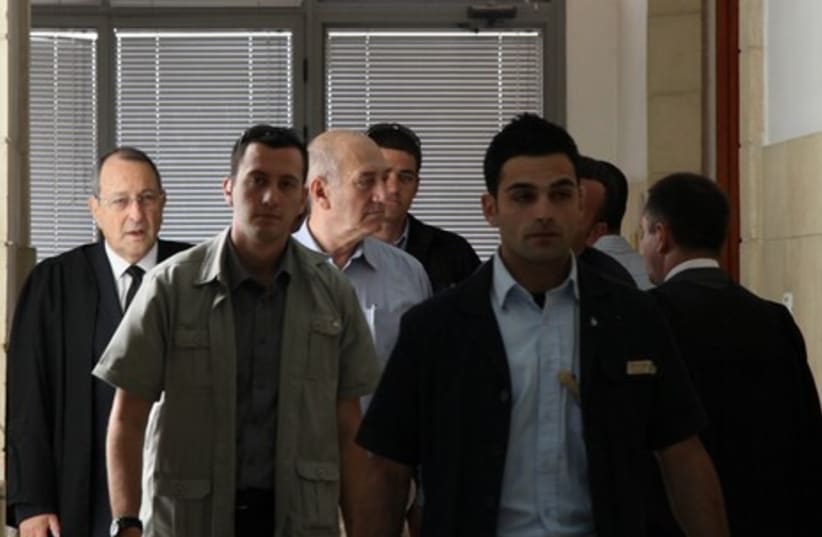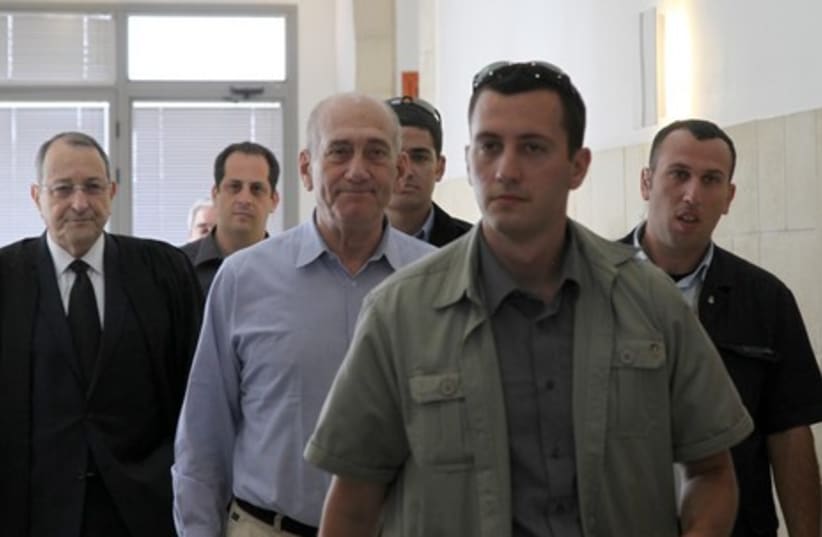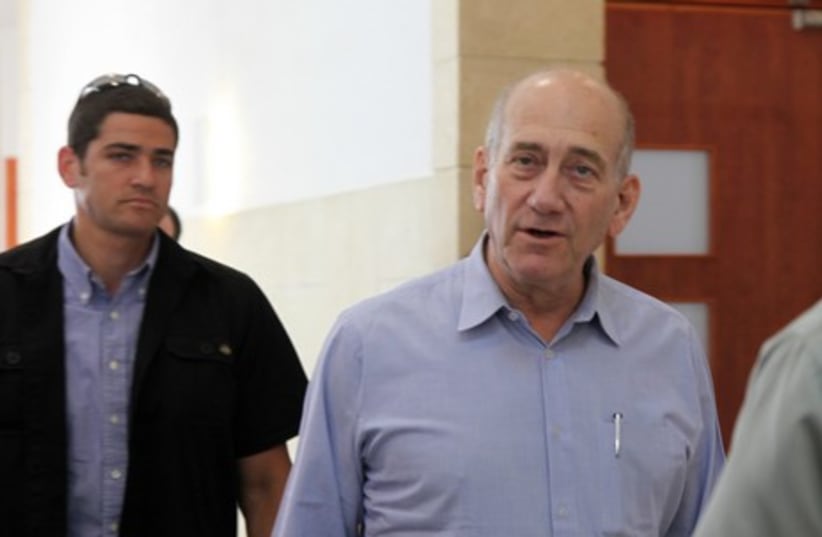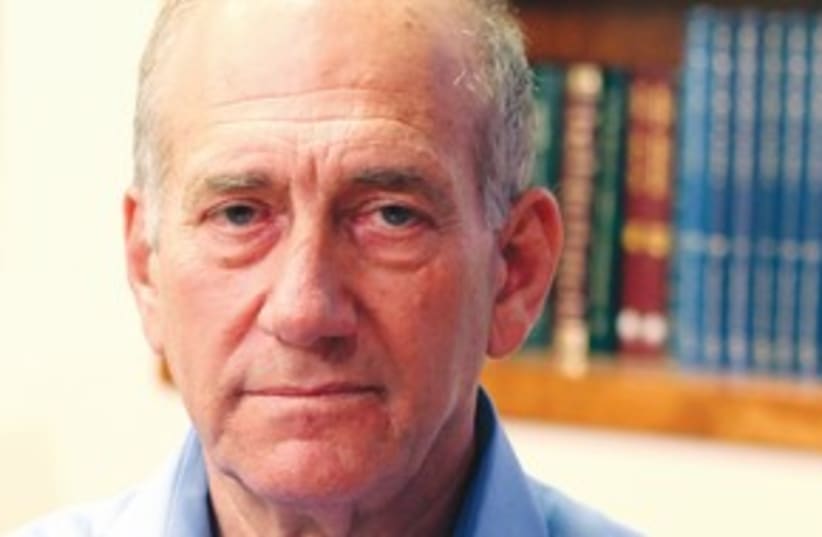



Olmert arrived at the Jerusalem District Court to defend himself against charges which include double-billing voluntary and other public organizations, as well as the state, and using the extra money to finance private trips for himself and his family.RELATED:Olmert among officials to be indicted in Holyland affairOlmert trial to resume after prosecutors return to workOlmert went on to say, "The things that I am saying connect with who I am, not the man that I was portrayed as being. It is important that you know who I really am."Throughout the morning Olmert testified about his life story, beginning with his childhood in Binyamina and his military service. He also talked about his introduction into politics as an activist. He later explained how he opened his own private law firm where he met Shula Zaken, a former aide and another suspect in the trial.Regarding his relationship with Zaken, Olmert said that he trusted her completely. According to Olmert, Zaken was involved in every aspect of his life, from meetings, to fund-raising to managing his personal funds."If it wasn't for Shula I wouldn't know the condition of my bank overdraft. She had the authority to pay my bills and write checks in my name. I hadn't met with my bank manager for 30 years. She took care of everything." "I put my trust in her. She was my confidant and still is despite the circumstances," said Olmert.Afterward, he spoke about his political career and his time in the Likud Party. He talked about his work as a young Knesset member and his trips abroad where he represented Israel.During his race for Jerusalem mayor, Olmert met for the first time with Morris Talansky who was beneficial to his campaign and was later accused of bribing the former prime minister. Olmert testified that Talansky's role was to raise money for his mayoral campaign and introduce Olmert to potential donors from the US. Talansky turned to his network of acquaintances and donors, who he knew from fund-raising for the Shaarei Tzadeck hospital, requesting that they donate to the mayoral campaign."Talansky was portrayed as an international businessman and a billionaire, but in truth he was an employee who earned a generous salary in local terms, but far from the way he is being described today," said Olmert."The money was raised in meetings and dinners organized by Talansky. Empty envelopes were left on the table and whoever wanted to, could donate by cash payments, credit card or checks," Olmert said."I want you to know what I did for years and who I met with. I'm not talking about 15 trips, I'm talking about hundreds of trips over the years, during which I raised millions of dollars for the Likud. I'm trying to unload the troubles that I've been plagued with for three years," said Olmert.Olmert said that in his hundreds of trips abroad, whether for fund-raising purposes or for official duties, he had never taken personal time off."I used to work nonstop day after day and was never tempted to stay behind for a weekend vacation," he said.Olmert said that the prosecution's short list of trips that he allegedly double-billed was an unfair representation of his wide scale activities over the years. "You must remember that we are talking about the early 90's when Jerusalem was at the heart of the discourse after the Oslo accords. Everyone wanted to hear the mayor of Jerusalem talk about the city," he said. At one point during the testimony, while recalling former prime minister Yitzhak Shamir, his emotions got the better of him and he shed a tear. Before the former prime minister took to the stand, his attorney, Eli Zohar, said that "Olmert was forced to resign from his position as prime minister because of the preliminary testimony of the central witness, Morris Talansky."Olmert's lawyer asked the court to be patient so that each and every claim would be answered. He also said that every part of the testimony would have a bearing on the outcome of the trial.On Monday, the court rejected Olmert's request to delay his testimony by two weeks for medical reasons.He said he was suffering from an affliction in his eye but on Tuesday morning he looked fit and healthy and related anecdotes and stories from his past. Sources close to the former prime minister said he does not plan to fight the prosecution while on the witness stand.Dan Izenberg contributed to this report.
